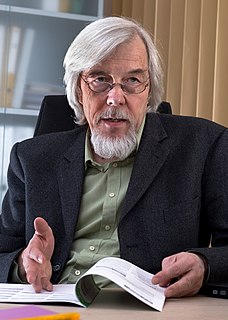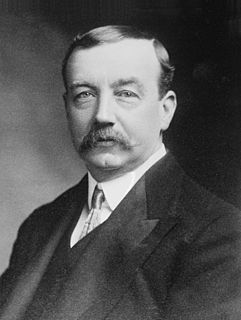A Quote by David Suzuki
Treaties, agreements and organizations to help settle disputes may be necessary, but they often favor the interests of business over citizens.
Related Quotes
Often vastly more important, international agreements are not routinely published in draft form or publicly debated, and civil society organizations and ordinary citizens often learn of important global institutional design decisions only after they have already been finalized and adopted. The only reliable way to be kept informed and to exert timely influence is by lobbying and paying the politicians and their negotiators.
African-Americans were dispossessed of the land by being brought over here in slave ships, whereas Indians were on the land and fought literally wars against Europeans for control of that land. And that history of dispossession, you know, if you look at the treaties, it's very interesting. Everyone thinks that Indians were ripped off in their treaties. If you look at the first round of treaties from about 1800 to the Civil War, tribes secured over 150 million acres. I think it may have been 144 million acres in those treaties. That's a large amount of real estate.
Russia has made its choice in favor of democracy. Fourteen years ago, independently, without any pressure from outside, it made that decision in the interests of itself and interests of its people - of its citizens. This is our final choice, and we have no way back. There can be no return to what we used to have before.
We should always settle disputes through dialogue and cooperation, and should not resort to the use or threat of force on the slightest provocation. We should get rid of Cold War thinking and broaden the converging points of our common interests, notwithstanding the differences in social systems and ideologies.
Geneva has a long history of hosting international organizations, which is part of the reason why CERN is here. CERN has signed agreements with the ITU, WIPO and the WMO. At first sight, there may not seem to be much common ground between CERN and, say, the World Meteorological Organization, but scratch the surface, and you'll soon find a common thread. All of these organizations have a vocation to stimulate technological innovation, and together we're stronger.
Oswald Mosley`s movement, it was a big movement. It was obviously anti-immigrant, anti-Semitic, it was populist. Mosley wanted to replace the parliamentary system of government in Britain with a government that was based on business interests, that was based on the idea that business interests were the real interests of that country and business interests.
and reorganizing the government to serve business interests, that would be a way to get stuff done faster and more efficiently.
The only meaningful contact is one that involves a genuine, giving personal interaction. You may want another person to help you in business, but you must also be willing to help him and to spend time getting to know his interests and needs... It has to be real and heartfelt, or it's best not to try to establish the relationship at all.
The Tea Party is almost solely grassroots-based; business interests have almost no grassroots organization. The Republican Party has for too long been run on behalf of business interests who favor candidates the grassroots hate; the minute that those candidates begin to flag, only loyal Tea Partiers stand behind them.
The commitment to international agreements is embodied, it's found in the U.S. Constitution. Article Six of the U.S. Constitution provides that treaties of the United States are part of the supreme law of the land along with the constitution itself and laws passed by Congress. Well, the US government certainly has not been acting in recent years as if treaties were part of the supreme law of the land.
It is a world of extremes, which can be characterised most clearly in terms of exclusion. That means political exclusion, whereby the rights of citizens are marginalised by the interests of big business: George W Bush's environmental policy, for example, is clearly formulated in the interests of U.S. energy companies.





































